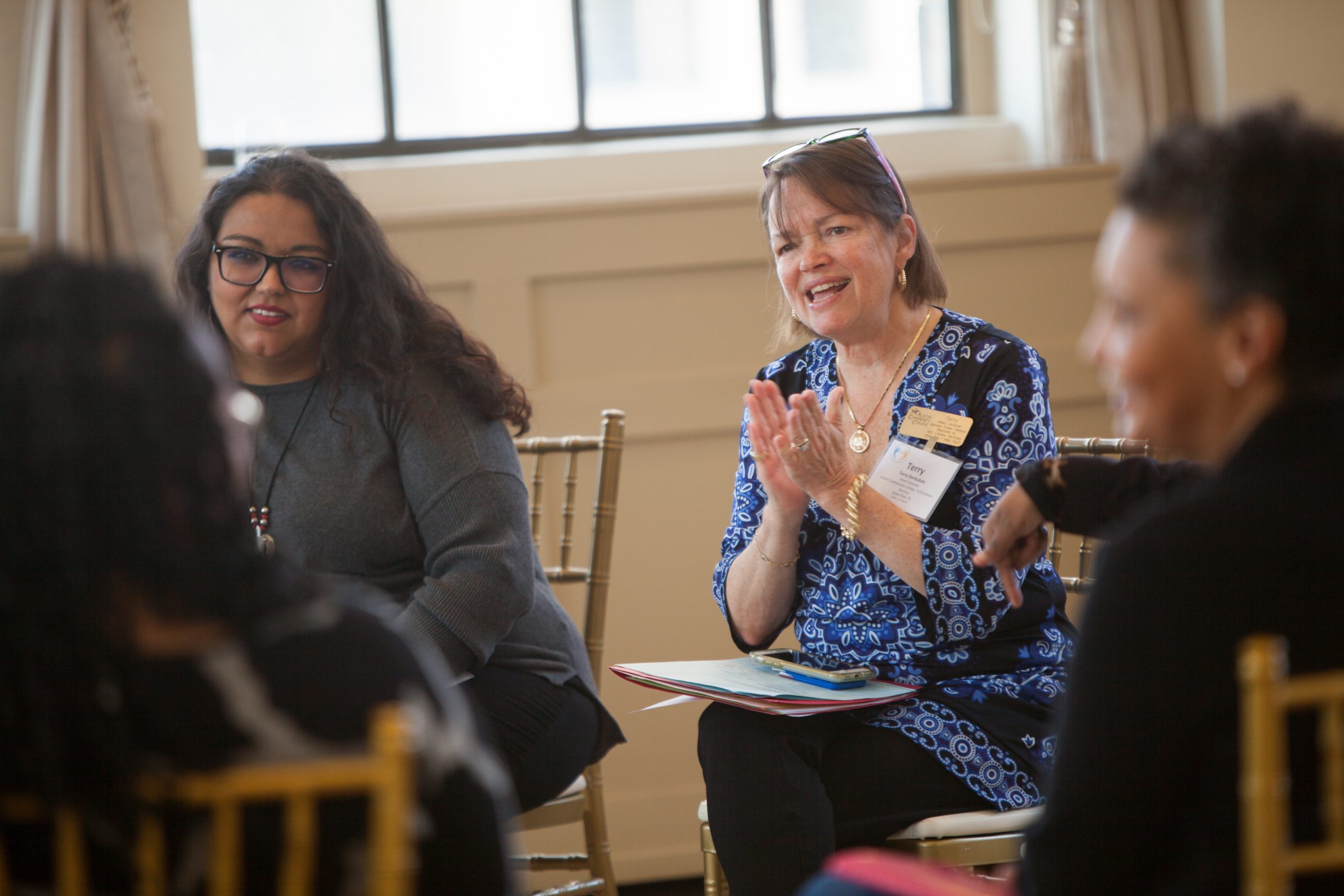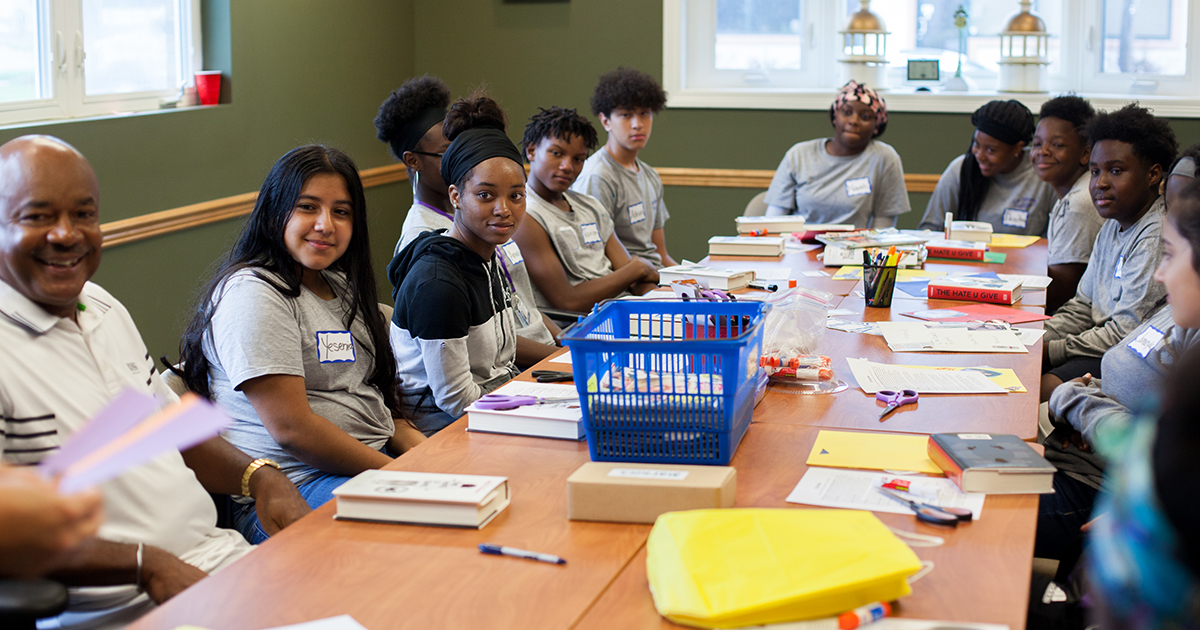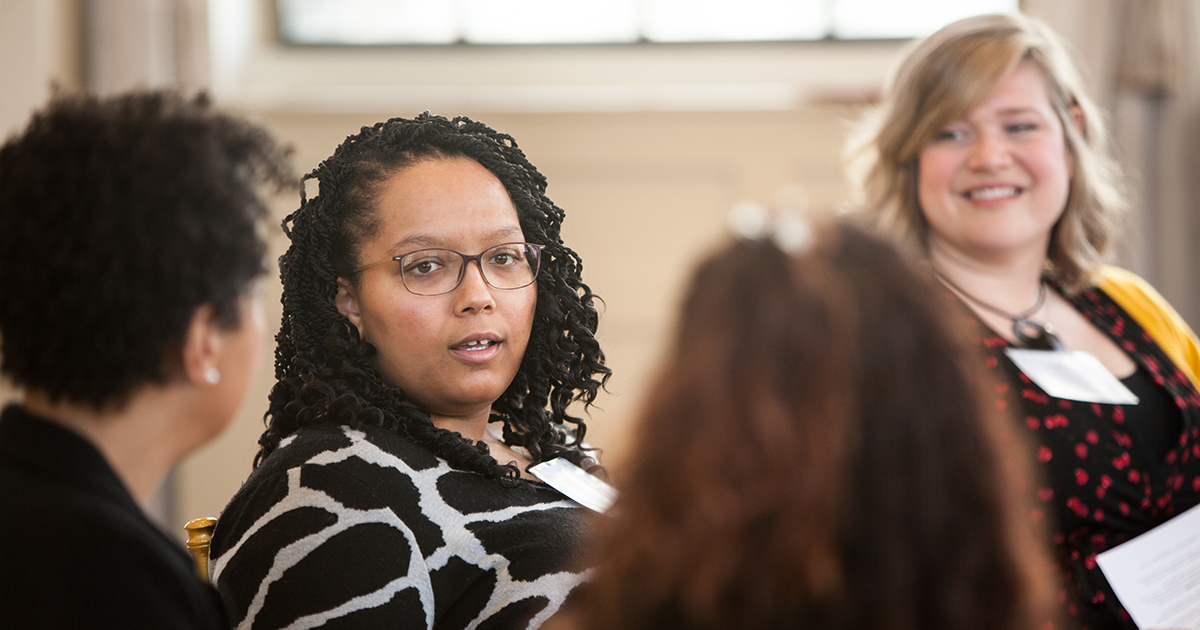Book clubs provide a wonderful forum for readers to talk about books and the reading experience and libraries contain many helpful resources for book groups. If you're looking for a book club to join, check with your library. Libraries often provide meeting space for book clubs and many administer their own book discussion groups.
Join a Book Club

Most people feel inadequate when they first join a book group. After all, the number of books you've read has very little bearing on how well you're able to talk about them. The following tips will help you show grace under fire and become an invaluable member of your book club.
By Neil Hollands
I know this seems obvious, but if you make the commitment to join a book club, find time for the reading and the meetings. People will notice if you consistently fail to finish the book or don't show up. Once they do, it might not matter how brilliant your insights are, since they naturally will pay you less attention. If you can't finish a book, it's very important not to make a fuss. Don't go on about everything that kept you from your reading or ask others to limit their discussion to avoid spoilers. They made sacrifices to read the book, so don’t expect sympathy if you didn’t. Contribute what you can and try to finish next time.
Neil Hollands is an adult services librarian, specializing in readers' advisory, at Williamsburg Regional Library (VA).
Start a Book Club
Thinking of starting your own book club?
Learn how to get started and find tips about structuring your meetings, facilitating a great discussion link, and finding the right books.
Submitted by LitLovers.com.

Lead a Book Club

You've elected—or have been elected—to lead a book club. Now what?
By Liz Kirchhoff
The best way to quell your nerves before your star turn is to thoroughly familiarize yourself with the material. Read the book and a few reviews as soon as you can. Give yourself as much time as possible to think about questions and themes, as well as which aspects of the book are most likely to interest your members.
Next you need to formulate discussion questions. In the realm of book-club leadership, a little Internet research goes a long way. If you're feeling lazy, you can often simply poach discussion questions already there for the taking: try LitLovers, or search for the book on the publisher's website.
Feeling more ambitious? Look up background information on book's setting and events. Find YouTube videos about the topic at hand, or try a Google image search—a slide show will make you look and feel well prepared.
At the very least, find the author's website or Wikipedia page and read her biography. As a bonus, author websites will often link to interviews, which can be a gold mine for thought-provoking questions.
Once you've got all the information you need, go through it and highlight questions, facts, and observations that seem like they'll keep the discussion moving along. A little work now will help you feel a lot more confident later.
Liz Kirchhoff is an adult services librarian at the Barrington Area Library in the Chicago suburbs. She is a longtime book reviewer, has read for the American Library Association's Notable Books Council, and was a member of the 2017 Andrew Carnegie Medals for Excellence in Fiction and Nonfiction Selection Committee.
How to Structure a Meeting

Basic Ground Rules
- Members who haven’t read the book. Come anyway. Not everyone can finish every book, but non-readers may still have valuable insights.
- Disagreements about the book. Be gracious! There is no one way to experience or interpret a book. In fact, differing opinions are good.
- Members who prefer to socialize. Be gentle but firm. Insist that discussion time be limited to the book. Some clubs hold book discussions first and invite "social members" to join afterward.
- Dominating personalities. Never easy. “Let’s hear from some others” is one approach. Some clubs pass an object around the room; you talk only when you hold the object. If the person continues to dominate, a friendly phone call (no e-mail) might work. If all fails, well...sometimes they've just got to go—for the good of the club.
Submitted by LitLovers.com.
Facilitate a Book Discussion
- Choose one question at a time and toss it out to the group. (See Generic Discussion Questions below.)
- Select a number of questions, write each on an index card, and distribute. Each member (or a team of 2-3) takes a card and answers the question.
- Use a prop (or object) related to the story, such as maps, photos, paintings, food, or audio. This can help stimulate members' thinking about some aspect of the story.
- Pick out a specific passage from the book description, an idea, a line of dialogue—and ask members to comment. For instance: “How does the passage reflect a character or the work's central meaning?”
- Choose a primary character and ask members to comment on him or her. Consider things like: Character traits, motivations, how he/she affects the story's events and characters.
- Play a literary game. Use an “icebreaker” activity to loosen you up and get your discussion off to an enthusiastic start.
- Distribute handouts to everyone in order to refresh memories or use as talking points. Identify the primary characters and summarize the plot.
Submitted by LitLovers.com.
- Avoid the words "like" and “dislike.” They aren’t helpful in moving discussions forward, and can make others feel defensive. Instead, talk about your experience; how you felt as you read the book.
- Support your views. Use specific passages from the book as evidence for your ideas. This is a literary analysis technique called “close reading.”
- Take notes as you read. Jot down particularly interesting passages: something that strikes you or, that you don't understand. Take your notes to the meeting.

Troubleshoot a Book Club
Is your book club not running smoothly? Does it need a tune-up? In my years of moderating book clubs, I've learned that digression is the most prevalent problem. Interruptions can destroy the flow of discussion, create ill will between readers, and distract the group. Fear not: I've developed effective, tactful ways for book-group leaders to identify the source of interruptions and harness them for good.
By Neil Hollands

Groups employing themes often welcome digressions; groups reading a common book may be less amenable to wandering. Groups that acknowledge a social purpose to meetings expect time for other subjects, while groups that want serious book talk will frown on interruptions. If your group has never discussed its goals and intentions, and members are pulling in different directions, perhaps it is time for a friendly discussion about your collective expectations.
Neil Hollands is an adult services librarian, specializing in readers' advisory, at Williamsburg Regional Library (VA).
How to Find Books
By Kaite Stover
By Kaite Stover
There's a question I always ask whenever I visit a book club: "What's the best book you've ever discussed?"
This is a surefire way to start a lively discussion, one that always begins with the books the group has enjoyed and inevitably transitions to those they haven't. Eventually, the group will conclude that the best books are those they never would have chosen for themselves. And as soon I hear a member say some variation of "This isn't a book I would have found on my own — I'm so glad I read it," I know I've found a title†I can recommend without hesitation.
After I've read a new title, I task myself with answering the following five questions before I present it as a potential book club selection:
- What's this book about? What's it really about? I come up with a quick plot summary that includes the larger issues and themes the story addresses.
- Which character changes the most? Why did he or she change, and what did she do to achieve that change?
- What motivates this character? Did the author present her motivations in a way a reader can understand?
- Does the story's time and place impact the way the characters behave? How does this setting affect their values and beliefs?
- How does the book end? Is the ending satisfying? (Note: a satisfying ending is not the same as a happy one.) Did the author leave any loose ends? Did she do so deliberately? What do any lingering questions tell the reader about the characters or the author's intentions?
If—and only if—my answers to these questions confirm a book's suitability for sustained discussion, it goes on the list. But self-reflection and polling book groups aren't the only ways to find titles that will provoke thoughtful conversation. Literary prizes, reading group guides, and web resources are just some of the myriad ways to find a great book. Here are some road-tested places where you can find titles sure to vanquish any future dull discussions.
By Kaite Stover
Book-Club Organizations
Association of Book Group Readers and Leaders (AGBRL) is also known as the Association of Professional Book Club Facilitators, and is an information clearinghouse for readers, individuals and book groups. P.O. Box 885 Highland Park, IL 60035. Rachel Jacobsohn, Founder/Director (E-mail: rachelj@interaccess.com).
Great Books Foundation is an organization designed to help booklovers begin their own discussion groups in schools, libraries, community centers, and private homes.
Library of Congress Center for the Book has a mission to sponsor programs that highlight their area’s literary heritage and promote the importance of literacy and libraries.
National Reading Group Month supports reading groups by promoting the love of reading and literature through nationwide events, and providing tips for enhancing book discussions.
Subscribe to the I Love Libraries newsletter for library news and advocacy updates.
Support I Love Libraries and our efforts to promote the value of libraries and librarians.
